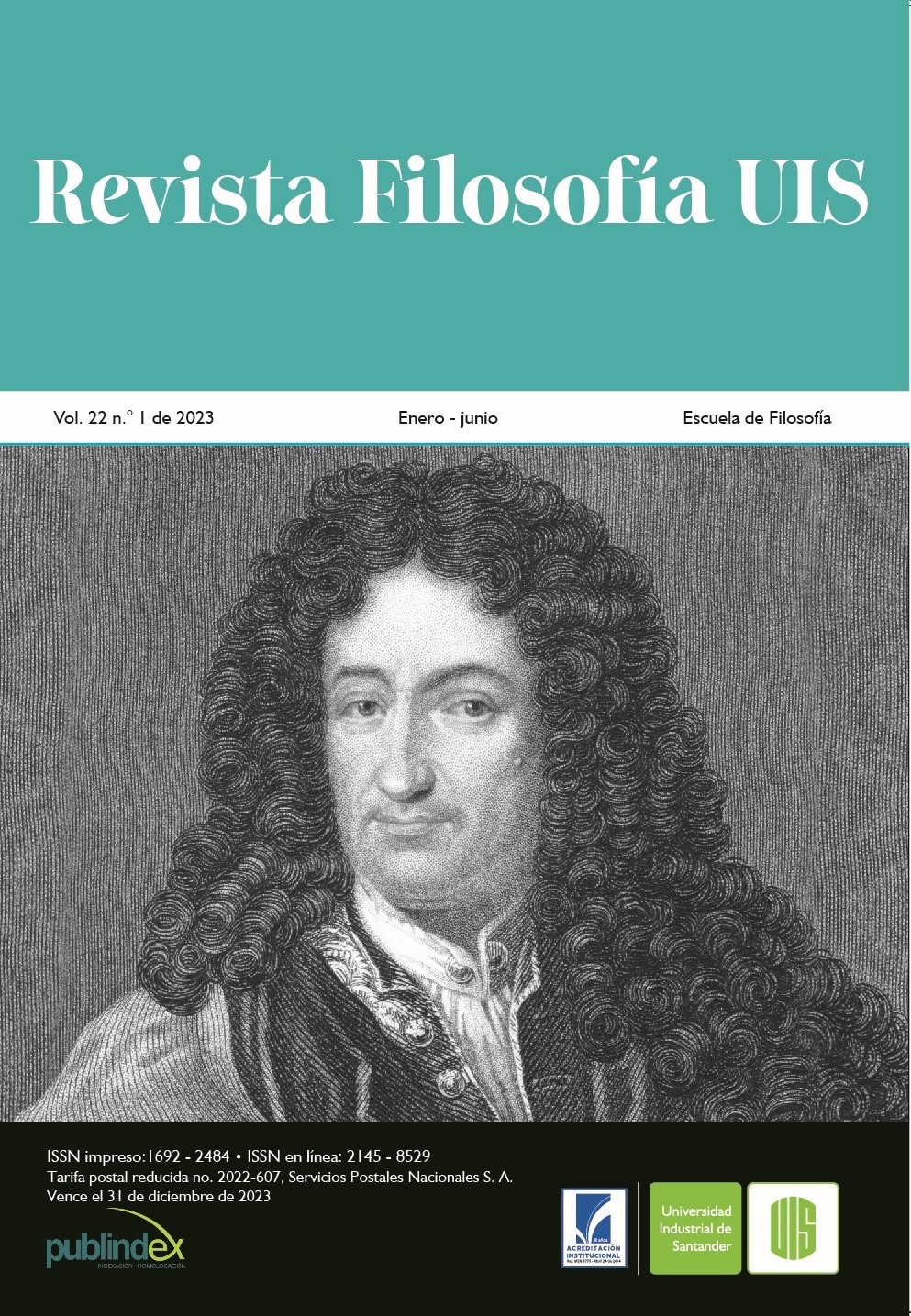Published 2023-01-02
Keywords
- humanism,
- transhumanism,
- bioconservatives,
- bioliberals,
- cyborg
- Anthropocene ...More
How to Cite
Copyright (c) 2023 Revista Filosofía UIS

This work is licensed under a Creative Commons Attribution 4.0 International License.
Abstract
The objective of this text it is to show the tension that exists between two projects: the humanist and the transhumanist. Here the thesis that the transhumanist project can propose a life worth living from technological improvement will be exposed. In order to defend this thesis, the following itinerary will be proposed: examine the thesis of human exceptionality and the transhumanist proposal; the bioconservative and bioliberal positions and the postulation of the cyborg in the context of the Anthropocene as a project of a moderate transhumanism.
Downloads
References
- Aristóteles (2014). Física. Gredos.
- Berardi, F. (2017). Fenomenología del fin: Sensibilidad y mutación conectiva (A. López Gabrielidis, trad.). Caja Negra.
- Bostrom, N. (2005). In Defense of Posthuman Dignity. Bioethics, 19(3), 202-214. https://doi.org/10.1111/j.1467-8519.2005.00437.x
- Bostrom, N. (2014a). Introduction—The Transhumanist FAQ: A General Introduction. En Transhumanism and the Body: The World Religions Speak (pp. 1-17). Palgrave Macmillan US. https://doi.org/10.1057/9781137342768_1
- Bostrom, N. (2014b). Superintelligence: Paths, dangers, strategies (1st. Ed.). Oxford University Press.
- Castro-Gómez, S. (2012). Sobre el concepto de antropotécnica en Peter Sloterdijk. Revista de Estudios Sociales, (43), 63-73. https://doi.org/10.7440/res43.2012.06
- Crutzen, P., & Stoermer, E. (2000). The “Anthropocene”. Global Change Newsletter, 41, 17-18.
- Diéguez, A. (2021a). Cuerpos inadecuados el desafío transhumanista a la filosofía. Herder. https://www.jstor.org/stable/10.2307/j.ctv1prsscc
- Diéguez, A. (2021b). Transhumanismo. Herder Editorial.
- Foucault, M. (1999). Entre filosofía y literatura: Obras esenciales. Ediciones Paidós.
- Fukuyama, F. (2003). Our posthuman future: Consequences of the biotechnological revolution. Picador.
- Gehlen, A. (1993). Antropología filosófica: Del encuentro y descubrimiento del hombre por sí mismo. Paidós.
- Haraway, D. (1990). A Manifesto for Cyborgs: Science, Technology, and Socialist Feminism in the 1980s. En L. J. Nicholson (Ed.), Feminism/postmodernism (pp. 190-233). Routledge.
- Haraway, D. (2015). Anthropocene, Capitalocene, Plantationocene, Chthulucene: Making Kin. Environmental Humanities, 6(1), 159-165. https://doi.org/10.1215/22011919-3615934
- Huxley, J. (1957). New Bottles for New Wine: Essays. Chatto & Windus.
- Huxley, J. (1927). Religion without revelation. Harper & Brothers.
- Kurzweil, R. (2005). The singularity is near: When humans transcend biology. Viking.
- More, M. (1990). Transhumanism: Towards a Futurist Philosophy. Extropy, 6. http://fennetic.net/irc/extropy/ext6.pdf
- Nagel, T. (2003). ¿Cómo es ser un murciélago? En M. Ezcurdia & O. Hansberg (Eds.), Sensaciones (pp. 45-63). UNAM, Instituto de Investigaciones Filosóficas.
- Platón (1992). Alcibíades I. En Diálogos VII. Gredos.
- Rivas San Martín, F. (2019). Internet, mon amour: Infecciones queer/cuir entre digital y material (V. Montero & N. Cuello, Eds.1ra. Edición). ÉCFRASIS.
- Rivera Novoa, Á. (2020). Mente extendida y transhumanismo: ¿Qué tan humana es la mente de un cyborg? En O. M. Donato Rodríguez & D. M. Muñoz González (Eds.). Redefinir lo humano en la era técnica perspectivas filosóficas (pp. 75-89). Universidad Libre.
- Roache, R., & Clarke, S. (2009). Bioconservatism, Bioliberalism, and the Wisdom of Reflecting on Repugnance. Monash Bioethics Review, 28, 1-21. https://doi.org/10.1007/BF03351306
- Schaeffer, J.-M. (2009). El fin de la excepción humana. (V. Goldstein, trad.). Fondo de Cultura Económica.
- Sharon, T. (2013). Human nature in an age of biotechnology: The case for mediated posthumanism. Springer Berlin Heidelberg.
- Sloterdijk, P. (2008). En el mismo barco. Siruela.
- Sloterdijk, P. (2011). Sin salvación: Tras las huellas de Heidegger. Akal.
- Steyerl, H. (2014). Los condenados de la pantalla (M. Expósito, trad.; 1a. Ed.). Caja Negra.
- Trischler, H. (2016). The Anthropocene: A Challenge for the History of Science, Technology, and the Environment. NTM Zeitschrift Für Geschichte Der Wissenschaften, Technik Und Medizin, 24(3), 309–335. https://doi.org/10.1007/s00048-016-0146-3
- Warwick, K. (2013). Cyborgs. En A. L. C. Runehov & L. Oviedo (Eds.), Encyclopedia of Sciences and Religions (pp. 570–576). Springer Netherlands. https://doi.org/10.1007/978-1-4020-8265-8_1210
- Warwick, K. (2014). The Cyborg Revolution. NanoEthics, 8(3), 263–273. https://doi.org/10.1007/s11569-014-0212-z
- Wittgenstein, L. (2009). Wittgenstein I: Tractatus Lógico-Philosophicus, Investigaciones Filosóficas, Sobre la certeza. Gredos.

